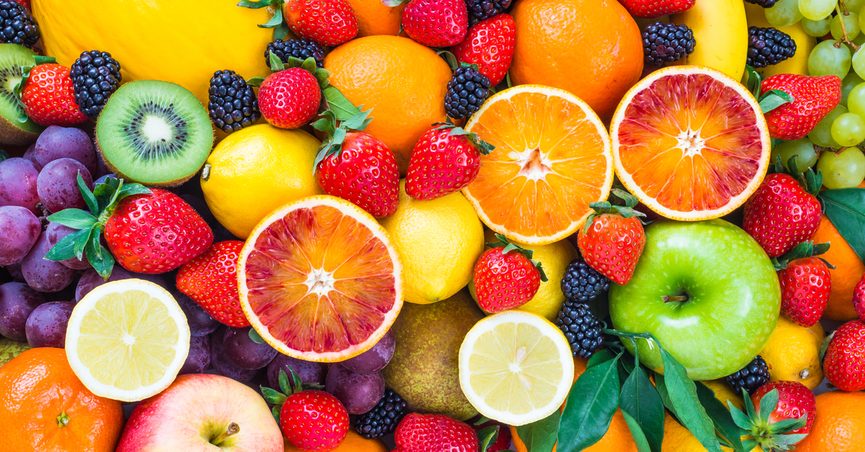Is the Sugar in Fruit Bad?
- One Comment

Why bananas shouldn't be on the "bad" list.
“I heard bananas are bad for you because of the high sugar. Is this true?”
The short answer is no. However, nutrition is highly individualized, so the answer is a bit more nuanced. To begin, let’s take a look at the sugar content of fruit.
The sugars found in fruit are fructose, glucose, and sucrose. Fructose and glucose are monosaccharides, the basic building block of any carbohydrate. Sucrose is a disaccharide composed of 2 monosaccharides. A sucrose molecule is composed of one molecule of fructose and glucose.
The total sugars in any fruit (or vegetable) are a sum of the fructose, glucose, and sucrose found in the fruit. A banana has 12 grams of sugars, equal to 3 teaspoons. 5 grams are from fructose, five from glucose, and two from sucrose.
Let’s talk about fructose, a sugar of concern for some people.
Although it is almost identical to glucose, fructose is metabolized primarily in the liver. Some research indicates that excess fructose consumption may lead to weight gain and insulin resistance.
However, a review of observational studies published in the Journal of the American Medical Association has shown that increased fruit consumption is tied to lower body weight and a lower risk of obesity-related diseases.
Why? Because fruit is not just fructose!
The fructose in fruit is packaged with fiber. Fiber is one of the main reasons to eat fruit. It slows down the absorption of sugars in the body. Besides taming the effects of sugars, it helps promote satiety (that feeling of fullness and satisfaction). Lastly, it improves the diversity of our gut microbiome.
Most people do not eat enough fruit. The USDA recommended intake is 1.5 – 2 cups, yet less than 13% of Americans consume this amount. We’re talking about two fruits a day, which Betr recommends!
A banana (Level 2) counts as one cup, as does a medium apple (Level 1).
Having a banana in the morning and an apple for an afternoon snack is not dangerous to your health. It’s good for you–so enjoy!
-Source: Examining the Health Effects of Fructose – David S. Ludwig, MD, Ph.D. – Journal of the American Medical Association, July 2013





Good to know. I was previously told that any fruit where you can not eat the skin has to much sugar.